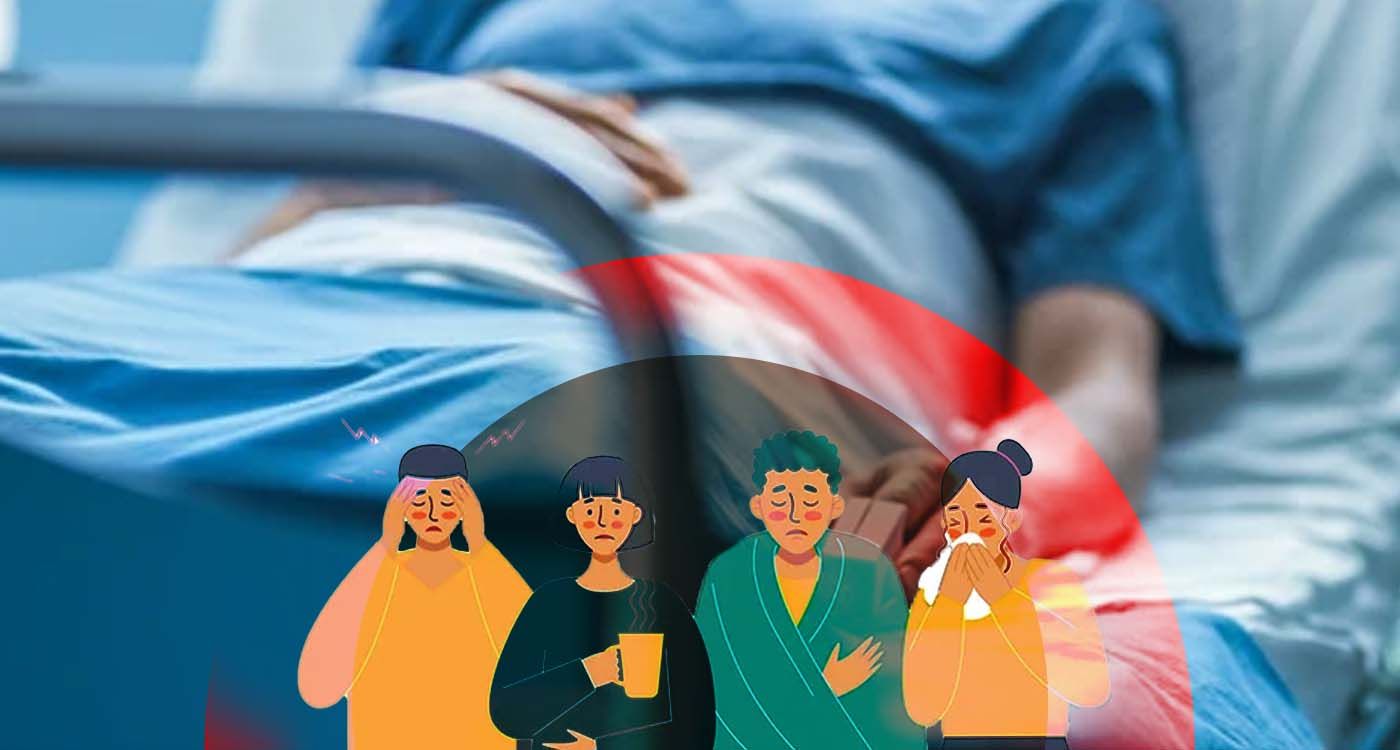
Sore throat, vomiting, diarrhea, high fever. It feels like everyone knows someone who's down with something. COVID is back, stomach bugs are spreading and even flu-like symptoms are making a summer comeback. To understand why so many people are falling ill in Lebanon this summer, and how to stay protected, we spoke with Dr. Rola Husni Samaha, Chair of the Department of Internal Medicine at LAUMC – Rizk hospital and an Infectious Diseases Specialist.
1. Why are we seeing a resurgence of COVID, gastroenteritis and flu-like illnesses in the middle of summer?
Not all respiratory viruses are strictly seasonal. Influenza is typically a winter virus, but COVID can circulate year-round with no seasonal preference. It spreads very quickly. When someone in a group has it, most people catch it unless they have recent immunity. That immunity only lasts around three to six months, so reinfections are common. Every three to four months, we see a new wave. Herd immunity builds up again until a new variant emerges.
Crowding, poor ventilation and time spent indoors due to air conditioning in summer or closed windows in winter all create favorable conditions for the virus to circulate.
For gastroenteritis, the main culprit right now is rotavirus, which is spreading worldwide. It is highly contagious, transmitted through the fecal-oral route by eating or touching something contaminated, and causes symptoms that range from mild to severe: nausea, vomiting, diarrhea.
Viruses circulate all year, but gastrointestinal infections can often be avoided with proper food and water safety. In Lebanon, due to the ongoing socioeconomic crisis, these basic preventive measures are becoming harder to maintain at home and in restaurants. Many restaurants no longer follow proper hygiene standards, and not everyone can afford to buy clean drinking water, which is contributing to a rise in foodborne illnesses.
2. What are the most common symptoms showing up this summer? Are there more severe or unusual forms than before?
The current COVID variant is mainly causing intense sore throat, high fever, dry cough and in some cases, nausea. There are fewer gastrointestinal symptoms with COVID compared to earlier variants. Most patients presenting with these symptoms are testing positive for COVID.
At the same time, there are clear outbreaks of non-COVID gastrointestinal viruses. When entire families get sick, it is usually because of poor hygiene or food contamination, often from restaurants that do not comply with safety regulations. The symptoms and clinical presentation remain consistent with what is medically expected.
3. What daily habits can help protect us from these infections?
Basic hygiene is key. Washing hands regularly helps prevent both respiratory and gastrointestinal infections.
Food and water safety is essential. Drink clean drinking water. Avoid ice cubes if you're not sure they are made from drinking water. Choose well-cooked food when eating out, especially in hot weather. Wash fruits and vegetables thoroughly with clean drinking water.
Support your immune system with a healthy diet. Dress appropriately to avoid temperature shocks, whether from air conditioning or excessive heat. Ventilate indoor spaces whenever possible to refresh the air and reduce the concentration of circulating viruses.




Comments